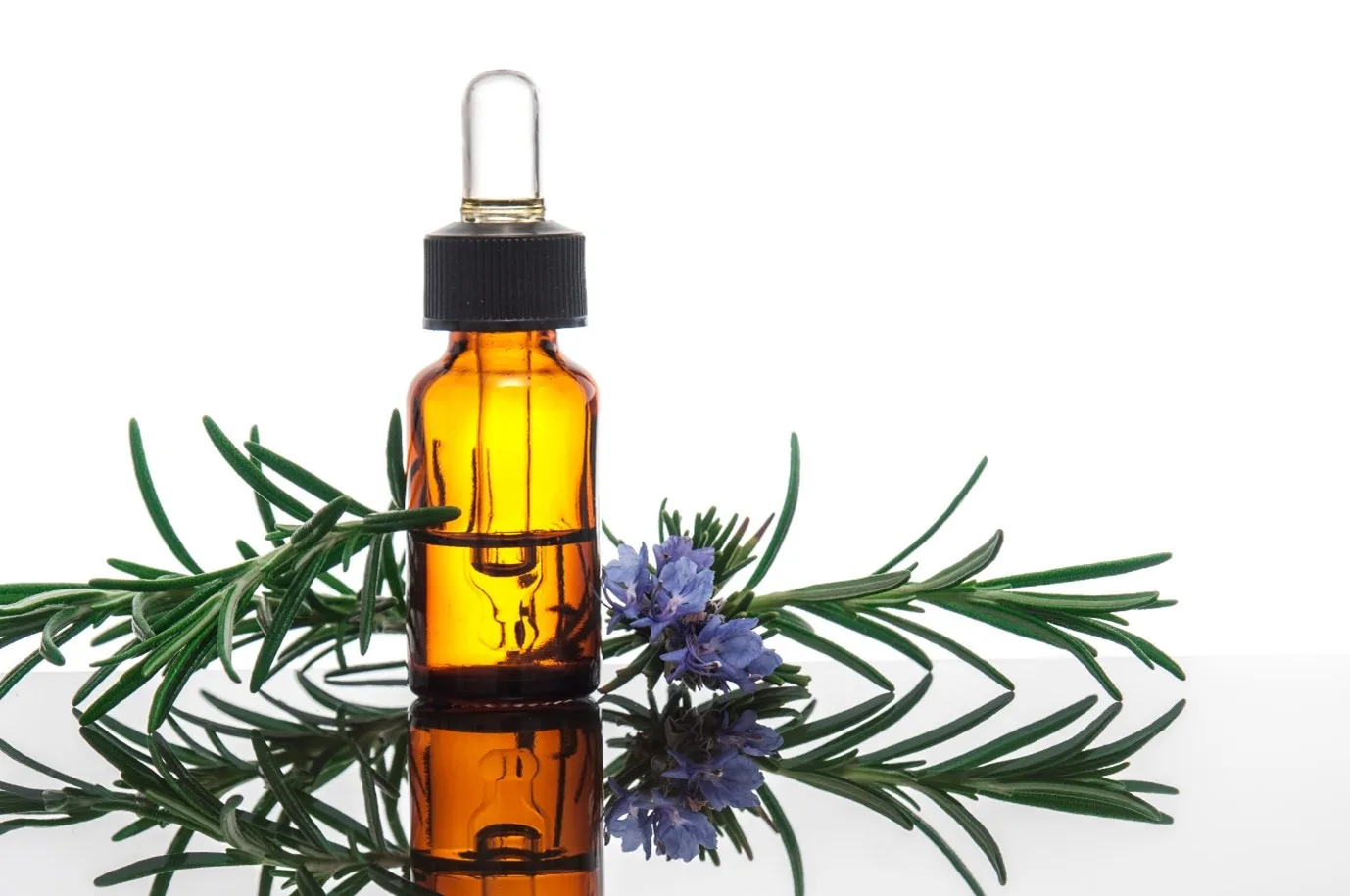ROSEMARY OIL AND ITS EFFECTS ON DANDRUFF
Can rosemary oil be the dandruff remedy that you’ve been searching for?

Rosemary is an evergreen shrub which is found in the Mediterranean region. It has thin needle-like leaves, with white, purple, pink, or blue flowers. It’s commonly used in cooking, but also finds usability in perfumes and creams.
This plant is used to create the rosemary essential oil, a highly concentrated extract used extensively in aromatherapy and fragrances. But this plant and its oil have also been used in folk and traditional medicine for centuries. It’s probably the reason why using rosemary oil for scalp is considered as such a potent solution.
What are the benefits of rosemary oil?
What about rosemary oil for dandruff?
How to use rosemary oil for dandruff?
What are the drawbacks of using rosemary oil?
What are the benefits of rosemary oil?
Before we get into the use of rosemary oil for dandruff, we need to first understand why people have been using this essential oil. It has various inherent benefits and contains a number of phytochemicals.
-
Antioxidant-
It has an antioxidant nature, which can reduce oxidative stress and prevent premature greying of your hair strands. -
Anti-inflammatory-
It can help soothe an irritation and reduce inflammation. -
Fungus and Microbes-
Rosemary oil can showcase strong anti-fungal and anti-microbial properties. -
Hair growth-
Studies have shown highly positive outcomes of using rosemary for hair growth and hair strength. -
Vasodilator-
It has shown to improve blood circulation, thereby increasing nutrient flow. -
Promotes healing-
Rosemary oil has shown to boost healing and even help nerve tissue. It also contains anti-septic characteristics.
What about rosemary oil for dandruff?
Dandruff is a common ailment which affects 1 in 2 people across the world. It is caused by excessive oil build-up and a naturally occurring fungus known as Malassezia Globosa. Your scalp secretes oil or sebum to protect your scalp and hair. But sometimes your oil glands can become over-active and secrete excess oil, which can start to build up.
This is when the fungus shifts into gear, breaking down the oil into oleic acid. If you are sensitive towards this fatty acid, your body will respond with itching, scalp redness and yellowish oily flakes of dead skin cells. This is dandruff.
Using rosemary oil for scalp dandruff might be effective because of its anti-fungal and astringent properties. It can attack the dandruff causing fungus, while the astringent nature can reduce the oil secretion on the scalp. This can potentially slow down the effect of your dandruff and get rid of those flakes. There are also claims of it disrupting the oil build-up and greasiness.
How to use rosemary oil for dandruff ?
There are various methods of using rosemary oil as a dandruff treatment at home. This oil is easily available but should be approached carefully. The use-cases are based on anecdotal evidence and people react differently.
-
Mix with carrier oil-
Add a few drops of rosemary oil to a carrier oil like coconut or jojoba oil. This helps to dilute the essential oil. You can then apply it to your scalp and massage it in. Leave for about 10 to 15 minutes and then wash with a shampoo. -
Add to shampoo-
You can add a few drops of rosemary oil to your shampoo and then use it on your hair. Lather this combination onto your hair and scalp, rinsing thoroughly after. -
Rosemary products-
You get products in the market which already contain rosemary oil. This could be an easy fix if you don’t want to mix and match different products. You might even get a dandruff shampoo that already has rosemary oil.
-
Hair masks-
People have tried experimenting and creating their own dandruff home remedies in the form of a hair mask with rosemary oil. But you should always be cautious as untoward reactions are always possible.
What are the drawbacks of using rosemary oil?
Since it’s a natural product, rosemary oil is relatively safe. But as with any product in the world, this essential oil also has some concerns.
-
Skin irritation-
You should never use undiluted rosemary oil on your scalp as it can cause irritation. The same goes with using excessive amounts, too frequently. -
Allergic reactions-
It’s always possible that you might be sensitive towards rosemary oil. Conduct a patch test on a small part of your skin and wait 48 hours to check if there is any reaction. -
Combining with other products-
Products can react with each other and create combinations that might have a disastrous effect on your scalp. Don’t try too many things together and always conduct a patch test. -
Pregnancy or breast feeding-
There is not adequate information of using rosemary oil when you’re pregnant or breast-feeding. Tread carefully. -
Effects aren’t proven-
Although many people have seen results, there is no conclusive proof that rosemary oil is effective against dandruff.
Rosemary oil may or may not work on your dandruff, only you can know for certain. But if you’re in a rush and need an effective solution, you can always try products like the Head and Shoulders Neem , which can give you dandruff and germ protection. Or if you want something that restores damaged hair and gets rid of visible flakes, try the Head and Shoulders 2 in 1 Smooth and Silky.



